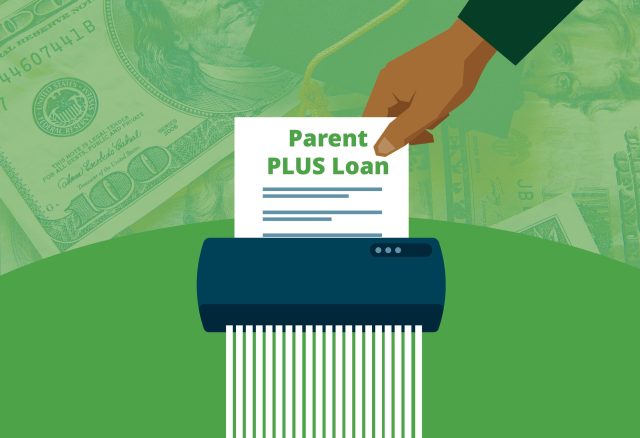Eligibility Criteria for Parent Loan
By Dumb Little Man
January 10, 2024

A parent loan refers to the cash borrowed by a student’s parent or legal guardian to assist with school expenses. The parent or guardian is solely responsible for repaying the debt because it is totally in their name. Parent loans for college are used to pay for college-related expenses like tuition, materials, or housing and board, just like other student loans.
Everything You Need to Know About Parent Loans

There are two alternatives for parent-student loans:
Federal Direct PLUS Loan for Parents
Parental Private Student Loan.
A Parent PLUS loan is the only federal student loan designed specifically for parents. They have a set interest rate and a typical repayment period of 10 years. In addition to any other financial aid the student receives, parents are permitted to borrow up to the cost of attendance. The school receives the money directly.
On the other hand, a Private Parent loan is given by a non-governmental organization, such as a bank or credit union, to a deserving parent or guardian of an undergraduate college student to assist in covering educational costs.
Each private lender has its own set of rules, prerequisites, applications, and interest rates, which can be either fixed or variable. Usually, these are assessed based on aspects like credit history and income analysis.
Pros and Cons of Both
Let’s take a deeper look, and then examine some of the advantages and disadvantages of each since they each have unique application procedures and specifications. Many parents want to support their children by paying all or part of their college expenses because they want to see them succeed academically.
It can be beneficial for students to concentrate on their studies, launch their careers, and be ready for their next significant purchase, such as a home or automobile, by lowering their post-graduation debt through parent loans. Parents are fully responsible for repaying the parent loan, but they are not held to the same obligations as they would be if the loan had been taken out in the student’s name. Instead, they might ask their children to help out.
They gain expertise in borrowing money and making payments without having to assume any risk because of this. Additionally, interest on all student loans, including parent loans, is tax deductible.
The amount of parent student loan interest paid may be deductible in full or in part by borrowers. Parent PLUS loans allow for deferment, where the repayments can be made at a later date and not immediately. However, the parent’s financial commitment is one of the parent loan’s main hazards. Your credit score might increase if you pay your bills on time, but it can also decrease if you make erroneous or late payments.
Since parent PLUS loans have more flexible loan choices than private student loans, they can be an excellent substitute. However, Parent PLUS loans can be more expensive than other options, and defaulting may result in heavy penalties like possible income and Welfare Benefits confiscation.
The Minimum Requirements for Parent PLUS Loan and the Private Parent Loan

The following are some of the main conditions that need to be fulfilled when applying for a parent-plus loan as well as a private parent loan.
1. Demands for Credit Scores
A Parent PLUS Loan does not have a set credit score criteria, but borrowers with a bad credit history might not be eligible to apply for this kind of loan. An unfavorable credit history. According to the U.S. Department of Education, an unfavorable credit history is one that meets any of the following requirements:
- Having debts that have been charged off or placed in collections within two years of the date of the credit report or accounts with a total balance of more than $2,085 that are 90 days or more past due.
- Defaulting on a loan within the previous five years of the credit report
- Declared bankruptcy five years prior to the credit report
- Had a foreclosure or repossession within five years of the credit report
- A federal student loan that was charged off within five years of the credit report
- Had a tax lien or wage garnishment within the five years before the credit report
If they add an endorsement or give the U.S. Department of Education supporting paperwork that shows there are extenuating circumstances surrounding the adverse credit history, parents with a bad credit history who have been rejected a Parent PLUS Loan might be able to qualify for one. Whereas, in the case of private parent loans, the situation is slightly different. The strongest credit borrowers typically receive the lowest interest rates.
In order to assess how your income stacks up against your other loans, lenders may additionally consider your debt-to-income ratio. Applying with a co-signer who has good credit may be an option if you are unable to meet a lender’s requirements on your own. Your co-signer will be equally responsible for the debt, and the loan will have an equal impact on their credit.
2. Only Parents can obtain it
You must meet the general eligibility requirements for federal student aid, be a biological or adoptive parent (or, in some situations, a stepparent), and not have a poor credit history (which the child must meet as well). Either parent may take out a Parent PLUS Loan if they are divorced or separated. When completing the Free Application for Federal Student Aid, the stepparent’s information must be provided if the parent has remarried (FAFSA). In this case, a stepparent (whose details are on the FAFSA) is additionally qualified to apply for a Parent PLUS Loan.
Either the parent is a citizen of the United States, a permanent resident, or another qualified non-citizen. When a parent is not a citizen the Request for a Federal Direct Parent PLUS Loan must include an Alien Registration Number and include a photocopy of the front and back of the borrower’s Alien Registration Card (I-151 or I-551). Private parent loans do not have a fee, unlike the parent PLUS loan and a FAFSA is not required.
It is significant to remember that parents are not required to borrow the entire amount provided. Families may choose to use one or a combination of installment plans from the college, tax credits, student income, their own income, and private loans to pay back some of the money supply in the form of PLUS loans, for example.
3. The Child Must be a FIrst-Year Student
Only dependent undergraduate students who are enrolled at least half-time in a Title IV-qualified college or career school are eligible for financial aid for their education. Parent PLUS loans are not available to graduate students. When submitting the Free Application for Federal Student Aid, a student is deemed “dependent” if they are under 24 years old, unmarried, and do not have any other legal dependents. (Exceptions are made for veterans, court-appointed wards, and other unique situations.)
The parent’s income and assets must be disclosed on the FAFSA if the student is deemed dependent. Before certifying a Parent PLUS loan, colleges must evaluate eligibility for both the parent and the dependent student. The school may require the parent to complete additional forms, such as signing a declaration of educational purpose, in addition to requesting the student’s complete financial assistance history.
In the case of a private loan, the requirements are almost the same and the child must be a part of a recognized institution and enrolled in an undergrad program.
4. Both Child and Parent Should be Eligible for Federal student funding
You and your child must fulfill the standard eligibility conditions for federal loans, which include being a citizen of the United States or an eligible non-citizen and possessing a current Social Security number. In adherence to all of the above-mentioned parental requirements, the student must have a high school diploma or an acceptable substitute, such as a GED, keep up with the required standards of academic development set by the institution, and enrollment in the Selective Service for male students between the ages of 18 and 25. In the case of private parent loans, no age is specified and it depends upon the law of that country. Note that unless they formally adopt the student, grandparents and guardians are not eligible for parent PLUS loans.
Therefore, keeping in mind, all the requirements stated above it’s evident that Federal Parent loans which are the governmental ones, have a downside and a slightly different criterion and might be more facilitating for the parents, unlike private student loans. Although some of the conditions for a federal parent loan seem to be expensive, for instance, a fee is required as well as stricter, making it expensive and difficult to obtain. Which option is more suitable depends upon certain factors. For instance, interest rates.
Conclusion
Private student loans to parents could have more affordable interest rates if they have good credit and a consistent salary. The eligibility criteria for a Federal PLUS loan seem to have some complex conditions and are not easy to obtain as private parent loans are. However, both options have their own importance and what to opt for depends upon the eligibility of the parent when applying for the loan. The main distinction between private student loans and Parent PLUS loans is that private student loan debtors are not eligible for income-driven repayment programs, whereas those with federal student loans are.
Dumb Little Man
At Dumb Little Man, we strive to provide quality content with accuracy for our readers. We bring you the most up-to-date news and our articles are fact-checked before publishing.

